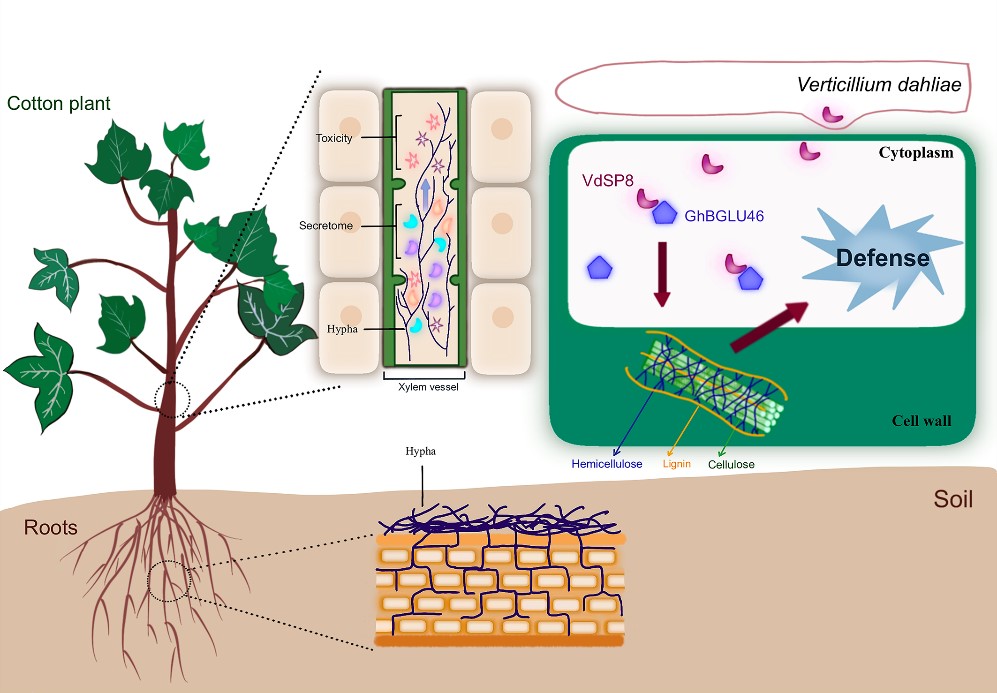Recently, the research paper titled "Verticillium dahliae elicitor VdSP8 enhances disease resistance through increasing lignin biosynthesis in cotton" was published online in the journal Plant, Cell & Environment by the Crop Disease and Pests Monitoring and Management Team from our college. Wang Yajuan, a doctoral student of our college, is the first author of this paper, and Professor Hu Xiaoping is the corresponding author.
Verticillium dahliae is a typical soil-borne vascular pathogenic fungus with a wide range of hosts, abundant genetic variation, long survival time in soil, and no effective disease-resistant resources, making the prevention and control of Verticillium wilt caused by V. dahliae a huge challenge and causing significant economic losses globally each year. During the process of pathogen infection in the host, some secreted proteins act as elicitors that can induce the activation of the plant immune system. These proteins not only provide a theoretical basis for the development of new disease control strategies but also offer important molecular targets for crop disease resistance improvement. However, there are relatively few studies on elicitors of V. dahliae.This study identified a secreted protein, VdSP8 (Verticillium dahliae S8 contained protease 8), in V. dahliae. Not only is VdSP8 secreted by V. dahliae into host cells, but it also induces programmed cell death (PCD) in host leaf cells, triggers ROS bursts, regulates the expression of immune-related genes, and thereby enhances the resistance of tobacco to Botrytis cinerea and Pseudomonas syringae. Through truncation mutation studies, it was found that the PeptidaseS8 domain is the key functional region of VdSP8 that induces plant PCD. After VdSP8 knockout, the sporulation ability of V. dahliae decreased, and pathogenicity increased, but there was no significant change in response to osmotic stress. Additionally, the study confirmed the interaction between VdSP8 and GhBGLU46. Silencing GhBGLU46 exacerbated the symptoms of Verticillium wilt in cotton plants, significantly reduced the expression of defense-related genes, and hindered the deposition of lignin in the cotton plant cell wall. Enzyme activity analysis showed that VdSP8 significantly increased the β-glucosidase activity of GhBGLU46. Further research indicated that there was no significant difference in the pathogenicity of the VdSP8 knockout mutant between GhBGLU46-silenced and non-silenced cotton plants, suggesting that VdSP8 relies on GhBGLU46 to enhance the resistance of cotton plants to Verticillium wilt. This study not only reveals the mechanism of action of VdSP8 in plant immunity but also provides a theoretical basis and research direction for the development of new control strategies for Verticillium wilt.

Associate Professors Qin Jun and Shang Wenjing from the team, Researcher Chen Jieying from Institute of Plant Protection, Chinese Academy of Agricultural Sciences, and Professor Krishna V. Subbarao from University of California, Davis, participated in this research. The study was supported by the Key International Cooperation Project between China and the United States (2018YFE0112500) and the National Natural Science Foundation of China (31371888).
Original link: https://doi.org/10.1111/pce.15170